In the Bible, in the Old Testament, there are stories of the kings of Israel and Judah - our Jewish ancestors through Christ. They are found in 1 & 2 Kings,
and 1 & 2 Chronicles. (The “chronicles of the kings.”)
{Perhaps for a spiritual exercise over the season of Lent… beginning this Wednesday… leading up to Easter… we can work on memorizing the names of the books of the Bible in order! In case we don’t know them already. Or forgot…}
Some of the kings lived for God. Some of them did not.
‘Not so different from many people today.
These books also tell the stories of God’s prophets, (men and women), who spoke God’s message to the people and their leaders.
Two of the most famous were Elijah and Elisha.
As Elijah neared the end of his earthly ministry, Elisha asked for a double portion of his beloved mentor’s spirit.
Soon after, Elijah was taken up to heaven in a whirlwind. Elisha then became God’s spokesperson to the northern kingdom.
Elisha walked in God’s power, just as Elijah did.
We are currently in a sermon series entitled “God’s power for everyday life.”
We, too, have access to God’s power in our lives.
Do you need power to overcome fear? Or unforgiveness? Perhaps laziness, or just doing the right thing?
When we draw nearer to God, He draws nearer to us. When we ask Him to fill us to overflowing with His Holy Spirit, He will. We just have to give Him more access to more of us. We just have to make time with Him, and His Word, and His people, a priority.
{Perhaps that’s the spiritual exercise to practice over this season of Lent - focusing on God more often. More prayer. More personal worship. More reading and studying of His word, personally. More reading of classic Christian writings which draw on experiences of people who came before us and went deeper… and were never the same again. (Hold up various books!) If you struggle with reading, you can get audiotapes. If you struggle with multiple distractions, you can start with a few minutes more each week…}
We need more of God, and God’s power through the Holy Spirit, to successfully live this Christian life. We also need to practice obedience. With it comes blessing.
And power. God’s power.
Elisha was filled with that power. His life included signs, proclamations, warnings, and miracles.
Three of the most memorable were mentioned by John Smith a few weeks ago when he brought us a word from God which was, “Don’t Limit Me.”
(How would it look if we didn’t limit God anymore?
What is it we’re doing to limit Him?
What is it we’re not doing to limit Him?
These might be some good questions, with forthcoming answers, to write down somewhere and meditate on for the next forty days starting on Wednesday, too!
Then apply the needed action, or lack of action, to also move forward spiritually!)
I encourage you to read the stories of Elijah and Elisha in the Bible over the next few weeks. They are breathtaking. They actually occurred. And they might even inspire us! The three most memorable John Smith shared with us, in not limiting God, included: the floating axhead (2 Kings 6:1-7), the flowing oil (4:1-7), and the healing of the widow’s son (4:8-37).
The fourth one is found in 2 Kings 5 and involves the healing of Naaman’s leprosy. Let’s look at 2 Kings 5:9-14 this morning. [Read] [Pray]
This story occurs approximately in the 800’s BC.
Aram was an increasingly powerful neighbor to the north of Israel. They had paid tribute to Israel under King David, but they were becoming increasingly hostile. The two nations were not on friendly terms.
Aram frequently conducted raids on Israel. Israel captives would often then be taken back to Aram after a successful raid.
Naaman, (Nah am ahn), or Nayman… (:-)), was a great hero of the Aramian nation. He was commander of the entire army! He was used to getting great respect.
He was “a great man in the sight of his master and highly regarded.”
He was also married.
After one of their successful raids in Israel, Naaman brought back an Israelite girl, a “young girl,” to serve his wife.
Naaman also had leprosy.
In the time this occurred, leprosy was a dreaded skin disease. (It’s known as Hanson’s disease today and can be treated with appropriate medication.) But during Naaman’s time, It was contagious and there was no medical cure for it. This makes me think of the current “coronavirus” scare. No one would want to be anywhere close to
anyone with this virus right now.
Naaman’s leprosy, however, must have been mild, because he still held his post. Perhaps it was just in the beginning stages. It was serious, though, and would eventually shorten his life.
So. The servant girl knew about Naaman’s illness and she knew about Elisha. She mentioned him to her mistress. The wife, in turn, told the husband, and he began to have hope for healing.
So then Naaman went to his king for permission to go to the king of Israel to get treatment from this known man of God, Elisha.
We fast forward to where we began to read. Naaman shows up at Elisha’s door in all his glory with all his horses and chariots! But Elisha doesn’t open the door personally. He sends a servant.
The servant has a message from Elisha and directions for Naaman to go wash himself seven times in the Jordan river. He then promises Naaman’s flesh will be restored and he will be cleansed.
Naaman goes quickly and with great gratitude and anticipation!
No!
His ego is affronted! He goes away angry!
Notice at this point, the contrast between the servant girl and the military leader.
The servant girl had every right to be angry too. But, instead, she humbly offered a solution to her mistress’s husband from a serious disease.
In contrast, Naaman goes away from Elisha’s servant with an attitude.
He not only goes away angry, but “disses” the instructions for his healing.
With arrogance. He thinks he knows better than God! And come on, the small and dirty Jordan river? Instead of the great rivers of his land?
But his servants don’t give up on him. They go to him and reason with him.
So he goes.
Finally, he obeys.
And with his obedience comes blessing. Great blessing. Life-saving, soul-cleansing blessing.
So he humbles himself and obeys Elisha’s commands in order to be healed.
He dips himself seven times (always a significant number in the Bible) in the Jordan river. And as he does, his flesh becomes transformed. It is restored. His skin becomes as pure and unaltered as that of a young boy.
Seven is symbolic of completion, or perfection. And that is what his skin becomes after he is obedient.
He almost missed his blessing, though, through disobedience.
What if he had given in to his ego and pride and stubbornness with doing things “his way,” rather than God’s way.
What blessings might we be missing because of stubbornness and pride and ego and insisting on doing it “our way,” instead of God’s way?
{Pause and pray, as led, for the HS to show us if there’s something we’re missing...}
This is such an important story of obedience. And humility.
Obedience to God begins with humility.
If we want more of God’s power in our lives, we have to start with believing that His way is better than our own.
We may not always understand His ways of working, but by humbly obeying, we will receive His blessings!
Is it true that God wants our obedience more than anything else?
Think about parents, or grandparents, and children.
If the children are obedient, then everything runs smoothly and there is peace and joy. When there is disobedience, there is chaos and no peace and no joy.
This is just one of many reasons, no doubt, that Paul wrote to the Ephesians in what we call the sixth chapter of the book, “Children, obey your parents in the Lord, for this is right. Honor your father and mother - which is the first commandment with a promise - so that it may go well with you and that you may enjoy long life on earth.”
Oh yeah. The ten commandments. Number five.
The Ten Commandments, found in Exodus 20 & Deuteronomy 5, are all about relationships, and obedience.
When we keep them, or are obedient, we experience rich blessing.
When we don’t keep them, or are disobedient, we do not.
The first four are about relationship with God. The second six are about relationship with others.
{That’s another possible Lenten exercise. Learn, and practice, the 10 commandments.)
Love God. Love others.
God told Israel if they kept His commandments, out of all the nations, they would be His “treasured possession.” (Exodus 19:5)
He gives us that same invitation today.
Also, when our love of God and faith in Christ is real, it will usually prove itself at home, in our relationships with those who know us best. Children and parents have a responsibility to each other. And we have a responsibility to God.
Children need to honor their parents. Parents need to care gently for their children. Ideally, of course, we’ll relate to each other with thoughtfulness and love. This happens best when we put the other’s interests above our own.
In many cultures around the world the love of Christ and the practice of obedience is personified in honoring our elders.
We could grow in this practice too with respect their life experience, and paying attention to their comfort and happiness. Where elders are respected, long life is a blessing, not a burden.
After Naaman humbled himself then he became obedient and he was healed.
He was looking for the big things, but instead, He found God in the small things.
The servant girl. The Jordan river rather than the larger, grander rivers of his country. And the simple act of dipping himself seven times into the water.
Elijah, the mentor of Elisha, found God in the small thing too, if you recall. In I Kings 19:9-12, the Lord was not in the “great and powerful wind,” the earthquake, or the fire. He waAs we grow closer to God and learn to listen for His voice, we experience more of His presence and His power. We also joyfully discover the more often we’re obedient to Him, the more blessing we experience!
It takes practice. Just start with one thing at a time, if you need to. Get up a few minutes earlier to carve out alone time with Him, perhaps. Or ask someone in the church out for coffee. Get to know them better.
In Revelation 14:12, we’re told the secret to enduring in faithfulness to God, in spite of whatever else may be happening, is trust and obedience.
John wrote, “This calls for patient endurance on the part of the people of God who keep His commands and remain faithful to Him.”
Jesus told us in John 14:15 and 15:14 that if we love Him, we’ll keep His commands. And if we do what He commands, in other words if we’re obedient, He even considers us His friends!
(Also, Henry Blackabee and EG: “love problem...”)
I don’t know about you, but I want to be counted as a friend of Jesus!
In 2 John 1:6, John equated obedience with love. He said, “And this is love: that we walk in obedience to His commands. As you have heard from the beginning, His command is that we walk in love.”
{So there’s another Lenten spiritual exercise possibility. To grow in walking in love. Perhaps we can start with someone we know we don’t love, and ask God to help us love them…}
Many of us have heard the Scripture from I Samuel 15:22 where Samuel declares to Saul, “To obey is better than sacrifice.”
No matter what we offer to God that we think is our best, or is sacrificial on our part, it’s still not as good as simple obedience to Him and His ways.
Obedience is better than sacrifice because we are letting God be God, and staying in our proper place with Him, the place of dependence and surrender to His goodness.

2/23/2020 - The Blessings of Obedience
February 23, 2020 • Pastor Rebecca Hyvonen
More from
Sermon Series: Power for Everyday Life




